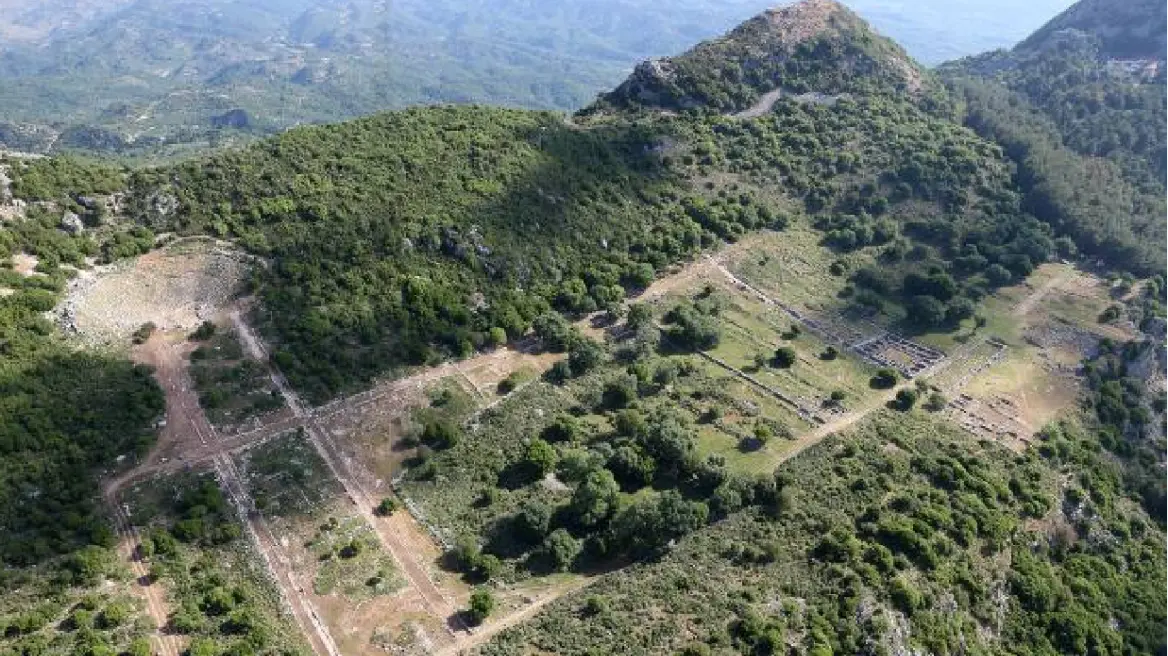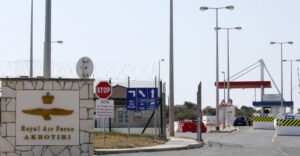After years of efforts, Greece is now very close to highlighting and utilizing its mineral wealth. And not just any ordinary metals, but Critical Raw Materials (CRMs). Antimony (Sb), a globally significant critical raw material, is one of them, and it is now coming to the forefront as the Ministry of Environment and Energy has launched an international public tender for the exploration and exploitation of the antimony deposit in northern Chios.
This deposit is located in the Melanios area, in the northwestern part of the island, and has been recorded as a source of high-quality antimony. In the first phase of the tender, non-binding offers were submitted by TERNA Magnesite, LAVA Mining & Quarrying (a subsidiary of the Heracles Group), and the companies Gaia Meleton and Geotest Chionis. Once the offers are reviewed in the coming days, the process will move to the second phase, which involves inviting binding bids for leasing the rights to explore and exploit mineral resources in a 9-square-kilometer section of the Public Mining Area of Chios. After completing the second phase, a contract between the Greek state and the selected bidder will follow, lasting five years for exploration and up to 30 years for exploitation (if significant deposits are found).
At the same time, the Ministry of Environment and Energy will secure the strictest commitments from the contractor regarding environmental protection, job creation for the local community, a share of fixed and proportional royalties for the Municipality of Chios, and a comprehensive Corporate Social Responsibility (CSR) program.
Chios Hides a Treasure Beneath Its Surface
The exploitation of the deposit in Chios began in the early 20th century, but mining operations were halted due to technical difficulties and low demand. However, why has it resurfaced, and why is antimony so important?
Antimony (symbol Sb, atomic number 51) is a mineral with various applications, including in the defense industry and green transition technologies. Greece is one of only two countries in Europe (along with Italy) that possesses antimony deposits, although they have remained untapped until now. It is used in several critical applications, including:
- Metallurgy: As an alloy with lead, copper, and other metals to produce durable materials for batteries, bearings, and other components.
- Flame-retardant materials: Its primary use today is as a flame retardant in plastics, fabrics, and electronic devices.
- Electronics and semiconductors: Used in semiconductor manufacturing for specialized electronic applications.
- Pharmaceutical and chemical industries: Historically used in medicine, it is now an ingredient in some pharmaceutical and cosmetic products.
- Glassmaking: Contributes to producing transparent and durable glass surfaces.
A Critical Metal for Ammunition Production
Interest in the Chios deposit has resurged due to the increasing global demand for antimony. China and Russia control most of the world’s production, creating geopolitical and economic constraints on its supply.
China banned antimony exports to the U.S. last December, worsening the global shortage. The U.S. and Europe are trying to replenish their stockpiles of bullets and bombs used in the Ukraine war. The well-known company Larvotto Resources plans to open a new mine in Australia next year, which could cover up to 7% of global demand. However, worldwide production remains insufficient, with annual demand reaching about 120,000 tons, while production is only 80,000 tons.
Prospects and Challenges
The exploitation of the Chios deposit could boost domestic antimony production, reducing reliance on imports. Specifically, utilizing Greece’s mineral wealth would strengthen both the country’s and the EU’s efforts to diversify raw material sources and enhance supply security. However, challenges include mining costs, environmental impact, and the investment’s economic viability. Moreover, the planned investment in Chios may face legal obstacles, as Greece has a strong litigation culture regarding such projects.
Despite the difficulties, antimony remains a critical metal for industry, and potential developments in exploiting deposits like the one in Chios could open new opportunities for Greek mining activity.
Ask me anything
Explore related questions





